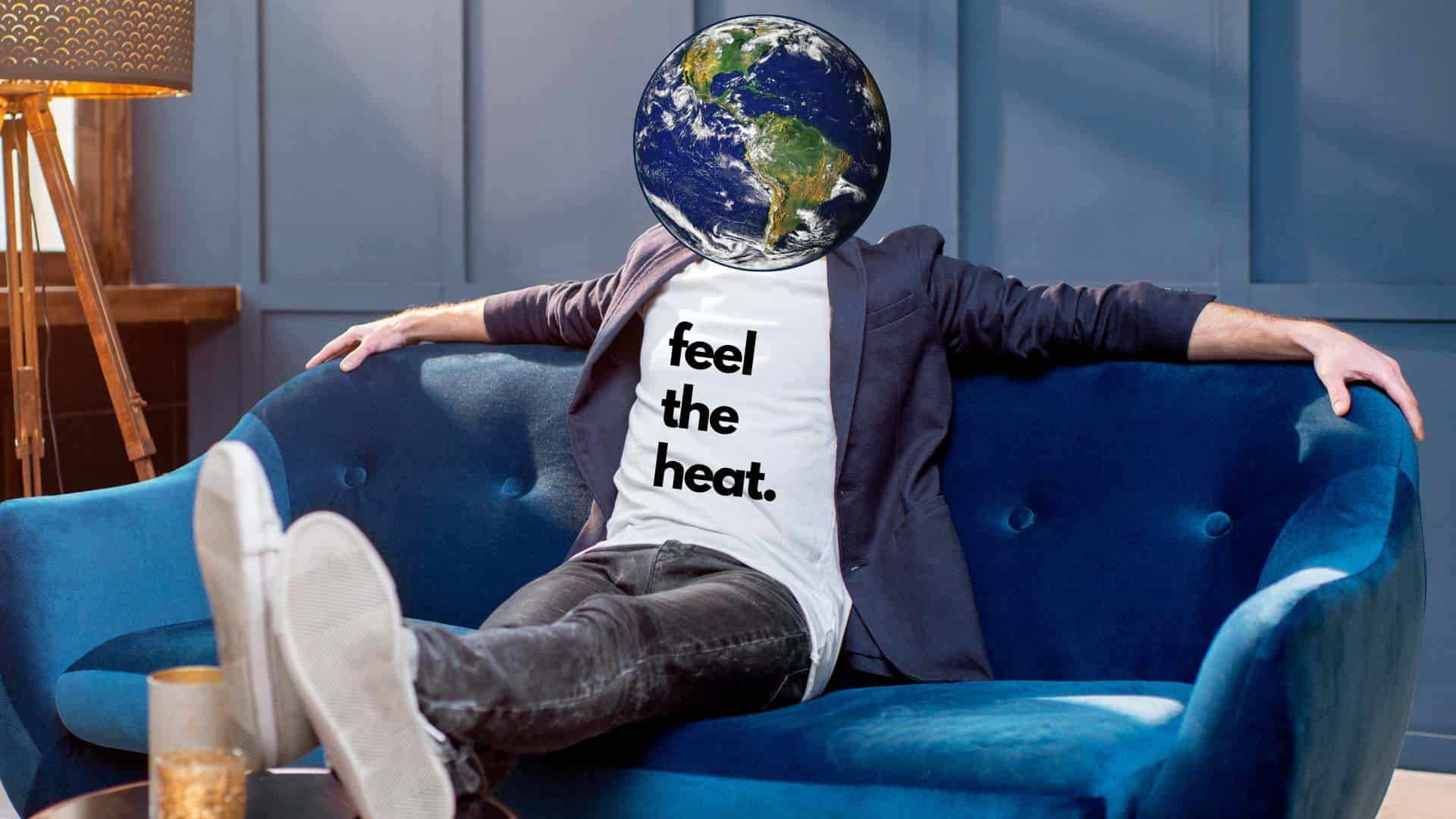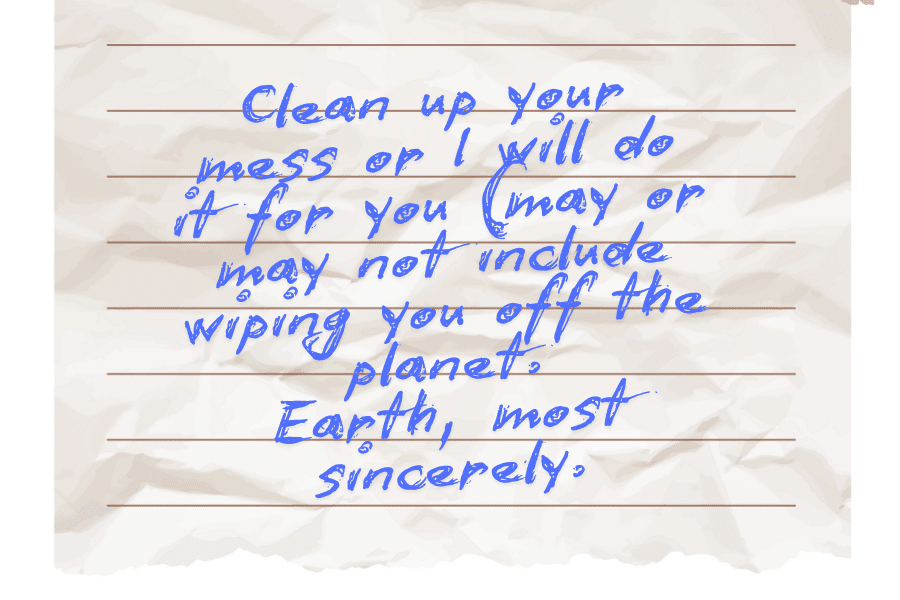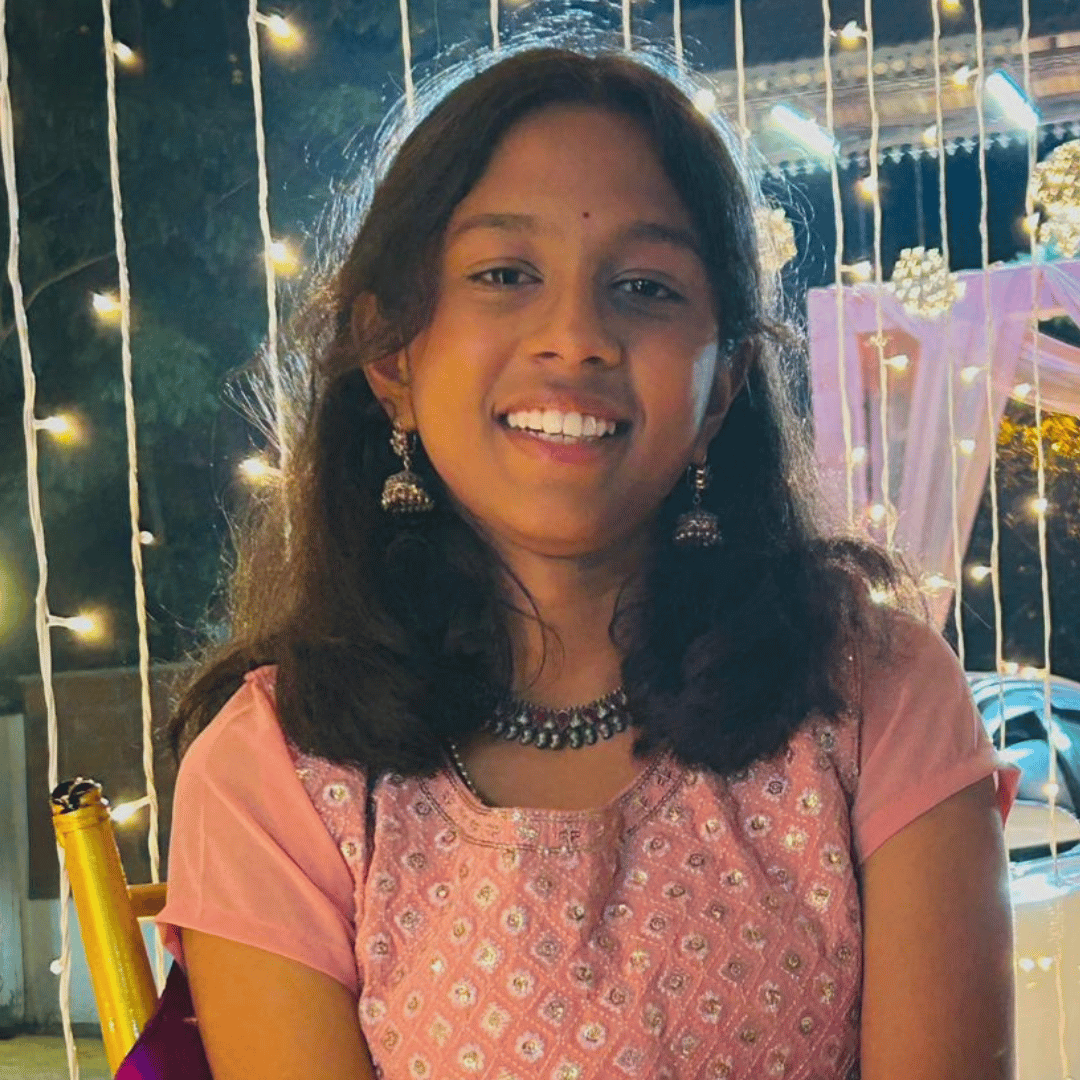Would you want a roommate to treat you the way we’ve treated the Earth? It’s time to clean up our act.

The Earth, personified, slouches on a sofa. (Illustration by News Decoder)
This article, by high school student Shikka Nanda, was produced out of News Decoder’s school partnership program. Shikka is a student at VIBGYOR Group of Schools in India, a News Decoder partner institution. Learn more about how News Decoder can work with your school.
Imagine the Earth as a roommate. It cranks up the heat, leaves the icebox open and has a carbon footprint the size of a T-Rex. Sounds scarring, right?
Yet, this isn’t just a joke — it’s the reality of climate change, a crisis that’s heating up faster than your favourite instant noodles. Take this as more than a sarcastic jab. When we joke that humanity ignores climate change because “denial is cheaper than action,” it hits a little too close to home. Every year, the signs grow louder and clearer: rising sea levels, record-breaking temperatures and once-in-a-lifetime storms becoming annual occurrences.
Sure, industrialization was one of the best things that happened to us, but so industrialized that we are choking ourselves?
A 2024 survey by Greenpeace India and the National Hawkers Federation of more than 700 Delhi street vendors who work long hours in the summer experienced dehydration, heat exhaustion and fatal heat strokes. Over 80% of women reported high blood pressure, with most experiencing menstrual disruptions and sleeplessness. Their children suffered heat-related illnesses like vomiting and nosebleeds.
They aren’t the only one’s affected. I am. We are. A 2023 survey by CFC India showed that about 72% of the respondents have suffered from climate anxiety at some point in their lives.
The increasing unmet mental health needs of people across the world constitutes an urgent global health challenge even without the detrimental effects of the climate crisis. The global economic cost of mental disorders (from direct healthcare costs and indirect costs from lost productivity) was estimated in 2010 at U.S. $2.5 trillion and is predicted to rise to $16 trillion by 2030.
But let’s forget the costs for a moment. Can’t we see that we are literally harming our future? Now, that climate change is also affecting us mentally, the poisoned air of the atmosphere now lives within us. In our heads.
It’s not only the big brains that are thinking about this, make no mistake: Gen Z already understands the importance of protecting the environment. The vast majority of these young adults, including 93% in the United States and 84% in the United Kingdom, say addressing climate change is critical for the future of the planet.
In the United States, more than 40% of Gen Z members rank climate change as one of the top three issues facing the world.
Still, only 20% say they minimize their waste, compared with 45% of the overall population. Similarly, only 37% say they reduce their energy and utility usage, compared with 43% of the overall population. Of those trying to reduce their energy use, fewer than half of Gen Z respondents say they turn off lights or decrease their heating or cooling use, compared with nearly 70% of non-Gen Z adults.
Gen Z and youth understand the problem, but they choose not to do something about it. However, we can’t blame them entirely; they are up against an entire system that naturally is resistant to change. I wouldn’t want to listen to a little child. Even if the child could have the most valuable points, I choose not to listen to them.
So, maybe let’s give them a chance. Let’s choose to listen. It’s all our futures at stake here after all.
Youth should be given the chance to engage with decision-makers and take part in conferences and forums where climate-related decisions are made. By giving them a seat at the table, their thoughts and ideas can shape policies and activities. Youth should be provided with opportunities to increase their influence and be acknowledged as important partners in resolving climate issues.
Consider Mock COP, a gathering of hundreds of young people that ran parallel to the COP29 — the United Nations world gathering of governments and climate leaders that took place in Azerbaijan in November — that empowers young people and amplifies their voices in climate decision-making. Mock COP aims to mobilise youth around the world to advocate for ambitious policies and collaborate with leaders for effective climate action.
So, what do we do when the Earth, our collective roommate, is crying out for help? We start listening. We empower youth with a seat at the table, armed with fresh ideas and an urgency we’ve lacked for far too long. After all we know: “If not now, when? And if not us, who?” Climate change isn’t waiting and neither should we. Maybe we should stop trying to just survive and learn to live a little, the right way.
Sure, we’ve made a mess, but just like we’ve learned to recycle our trash, maybe it’s time we recycle our mistakes into meaningful action. Because in the end, saving the planet isn’t just about cooler summers or calmer seas — it’s about leaving a home behind that our future generations won’t just survive in, but thrive in. And who knows? Maybe our Earth roommate will finally chill out, literally.
Because right now there is a note on the door:

Note from Earth. (Illustration by News Decoder)

Shikka Nanda was born in Bengaluru, the Silicon Valley of India, and spent the first seven years in the serene surroundings of Manipal, Udupi. She has been inspired by the harmonious coexistence of people and nature. Shikka has a love for writing and has completed over 42 hours of social work, which has taught her the importance of giving back to the community. She is also a Carnatic vocalist and plays basketball.

i just reading this article cause i’m trying to improve my english sklills but literally i love it i think she is just saying the truth and we well all of us should do something it’s already not enought with a litlle contribution
I randomly picked this article to practice my reading in English, but it’s a wonderful one I’ve read ever. As she said, we must do something to protect our environment by giving the youth a chance to raise their voice. Moreover, I love what she said: ” It’s about leaving our home behind that our future generations won’t just survive in, but thrive in.”